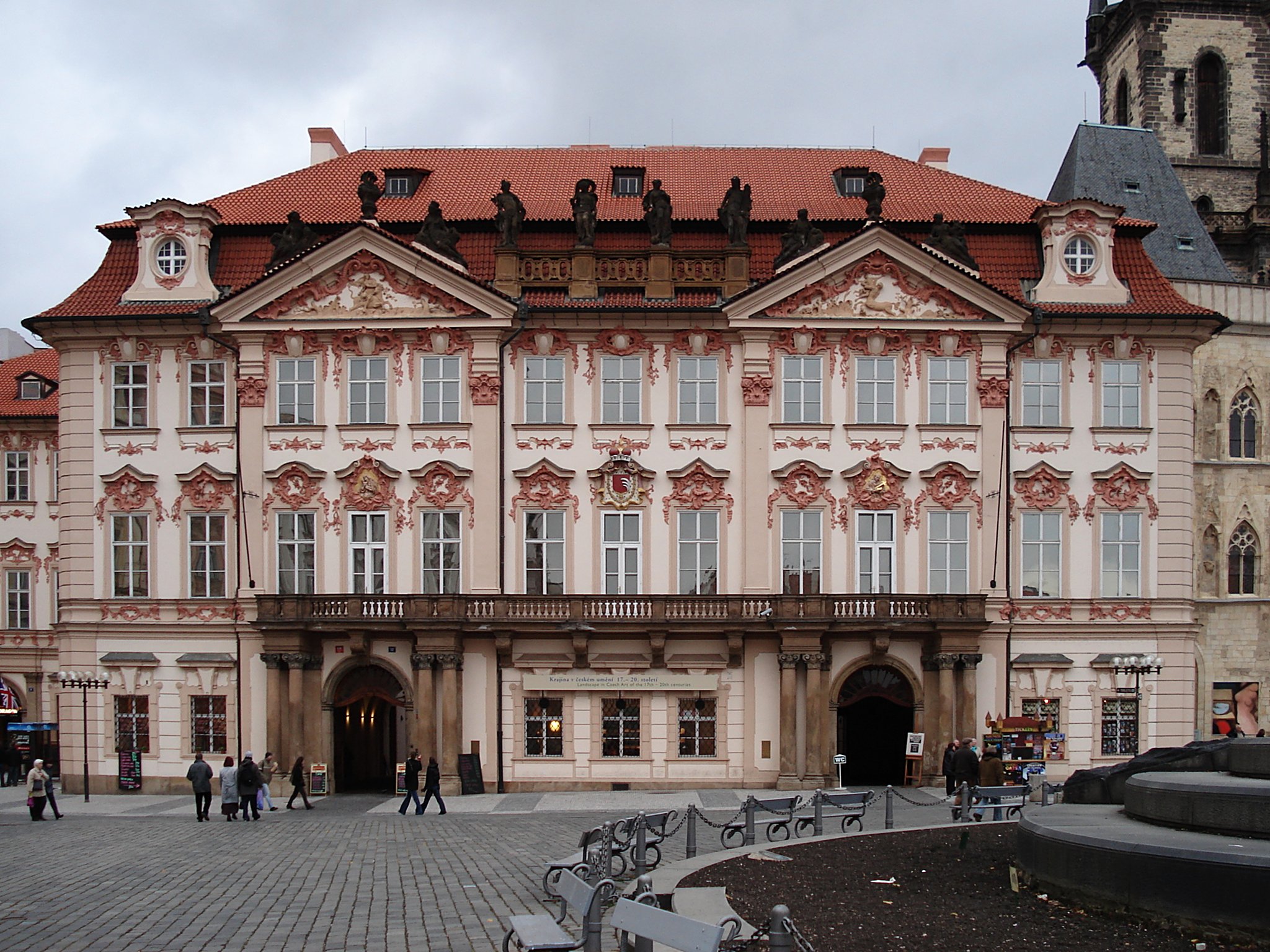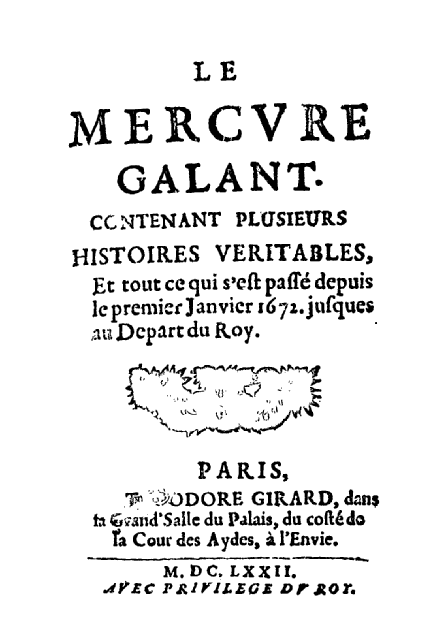|
Roger Vrigny
Roger Vrigny (; 19 May 1920, Paris – 16 August 1997, Lille) was a 20th-century French writer. Biography A professor, Roger Vrigny turned to the theatre in 1950 by founding a small company ("La Compagnie du Miroir"), before devoting himself to literature with his first novel, ''Arban'', in 1954. He entered literature under the aegis of the writer and poet Robert Mallet. Also a radio personality, Roger Vrigny hosted the program ''Belles Lettres'' on the ORTF in 1955, then the ''Matinée littéraire'' on France Culture from 1966. For thirty years, he animated various literary programs, the most recent being "Lettres Ouvertes", aired every Wednesday on France Culture. He was a member of the jury of the Prix Renaudot. Roger Vrigny never stopped working as a novelist, essayist and publisher, all activities were also marked by discretion and demand. In 1963, he received the Prix Femina for his book ''La Nuit de Mougins'', and in 1989 the Grand prix de littérature de l'Académie fr ... [...More Info...] [...Related Items...] OR: [Wikipedia] [Google] [Baidu] |
Lille
Lille (, ; ; ; ; ) is a city in the northern part of France, within French Flanders. Positioned along the Deûle river, near France's border with Belgium, it is the capital of the Hauts-de-France Regions of France, region, the Prefectures in France, prefecture of the Nord (French department), Nord Departments of France, department, and the main city of the Métropole Européenne de Lille, European Metropolis of Lille. The city of Lille proper had a population of 236,234 in 2020 within its small municipal territory of , but together with its French suburbs and exurbs the Lille metropolitan area (French part only), which extends over , had a population of 1,515,061 that same year (January 2020 census), the fourth most populated in France after Paris, Lyon, and Marseille. The city of Lille and 94 suburban French municipalities have formed since 2015 the Métropole Européenne de Lille, European Metropolis of Lille, an Indirect election, indirectly elected Métropole, metropolitan ... [...More Info...] [...Related Items...] OR: [Wikipedia] [Google] [Baidu] |
Actes Sud
Actes Sud is a French publishing house based in Arles. It was founded in 1978 by author Hubert Nyssen. By 2013, the company, then headed by Nyssen's daughter, Françoise Nyssen, had an annual turnover of 60 million euros and 60 staff members. History ACTeS was situated in Paradou, a village in the Vallée des Baux. Here, founder Hubert Nyssen, his wife Christine Le Bœuf, (which was the granddaughter of Belgian banker and patron Henry Le Bœuf), his sister Françoise Nyssen, Bertrand Py and Jean-Paul Capitani met and founded Actes Sud. In 1983 Actes Sud moved to Arles. The publishing house was incorporated on 2 May 1987. The ''Actes Sud'' was a publication of the "Atelier de cartographie thématique et statistique" (ACTeS). Authors A selection of authors Actes Sud published: Prizes * 2004: the book '' The Scortas' Sun'' (''Le Soleil des Scorta'') by Laurent Gaudé, was the first book published by Actes Sud, receiving a Prix Goncourt (Prix Goncourt/Roman). T ... [...More Info...] [...Related Items...] OR: [Wikipedia] [Google] [Baidu] |
Writers From Paris
A writer is a person who uses written words in different writing styles, genres and techniques to communicate ideas, to inspire feelings and emotions, or to entertain. Writers may develop different forms of writing such as novels, short stories, monographs, travelogues, plays, screenplays, teleplays, songs, and essays as well as reports, educational material, and news articles that may be of interest to the general public. Writers' works are nowadays published across a wide range of media. Skilled writers who are able to use language to express ideas well, often contribute significantly to the cultural content of a society. The term "writer" is also used elsewhere in the arts and music, such as songwriter or a screenwriter, but also a stand-alone "writer" typically refers to the creation of written language. Some writers work from an oral tradition. Writers can produce material across a number of genres, fictional or non-fictional. Other writers use multiple media such ... [...More Info...] [...Related Items...] OR: [Wikipedia] [Google] [Baidu] |
Prix Femina Winners
Prix was an American power pop band formed in Memphis, Tennessee, in 1975 by Tommy Hoehn and Jon Tiven. The group ended up primarily as a studio project. Its recordings were produced by Tiven along with former Big Star member Chris Bell, who also played guitar and sang backup vocals. Prix is also famous for its use of banjo. Alex Chilton also participated in the recordings, along with session drummer Hilly Michaels. Although the group generated some major record label interest—notably from Mercury Records and Columbia/CBS Records—it ultimately only released a double A-side single on Ork Records in 1977 and a single on Miracle Records in 1978. Its only live performance came at a CBS Records showcase in 1976. In 1977, just as Ork Records released the first single and booked the group at CBGB, Prix broke up due both to Hoehn's unwillingness to remain in New York and to creative differences. In 1978, two of the songs recorded during the Prix sessions were included on ''Losi ... [...More Info...] [...Related Items...] OR: [Wikipedia] [Google] [Baidu] |
French Radio Presenters
French may refer to: * Something of, from, or related to France ** French language, which originated in France ** French people, a nation and ethnic group ** French cuisine, cooking traditions and practices Arts and media * The French (band), a British rock band * "French" (episode), a live-action episode of ''The Super Mario Bros. Super Show!'' * ''Française'' (film), a 2008 film * French Stewart (born 1964), American actor Other uses * French (surname), a surname (including a list of people with the name) * French (tunic), a type of military jacket or tunic * French's, an American brand of mustard condiment * French (catheter scale), a unit of measurement * French Defence, a chess opening * French kiss, a type of kiss See also * France (other) * Franch, a surname * French Revolution (other) * French River (other), several rivers and other places * Frenching (other) Frenching may refer to: * Frenching (automobile), recessing or moul ... [...More Info...] [...Related Items...] OR: [Wikipedia] [Google] [Baidu] |
L'Humanité
(; ) is a French daily newspaper. It was previously an organisation of the SFIO, ''de facto'', and thereafter of the French Communist Party (PCF), and maintains links to the party. Its slogan is "In an ideal world, would not exist." History and profile Pre-World War II was founded in 1904 by Jean Jaurès, leader of the French Socialist Party (1902), French Socialist Party (PSF), which merged the following year in the French Section of the Workers' International (SFIO). Jaurès also edited the paper until his assassination on 31 July 1914. When the SFIO split at the 1920 Tours Congress, the Communists took control of , which became the official organisation of the French Communist Party (PCF), despite its socialist origins, while the SFIO retained control of the minor daily ''Le Populaire (French newspaper), Le Populaire''. The PCF has published it ever since and owns 40% of the paper with the remaining shares held by staff, readers and "friends" of the paper. The paper is ... [...More Info...] [...Related Items...] OR: [Wikipedia] [Google] [Baidu] |
Franz Kafka
Franz Kafka (3 July 1883 – 3 June 1924) was a novelist and writer from Prague who was Jewish, Austrian, and Czech and wrote in German. He is widely regarded as a major figure of 20th-century literature. His work fuses elements of Literary realism, realism and the fantastique, and typically features isolated protagonists facing bizarre or surreal predicaments and incomprehensible socio-bureaucratic powers. It has been interpreted as exploring themes of social alienation, alienation, existential anxiety, guilt (emotion), guilt, and absurdity. His best-known works include the novella ''The Metamorphosis'' (1915) and the novels ''The Trial'' (1924) and ''The Castle (novel), The Castle'' (1926). The term '':en:wikt:Kafkaesque, Kafkaesque'' has entered the English lexicon to describe bizarre situations like those depicted in his writing. Kafka was born into a middle-class German- and Yiddish-speaking Czech Jewish family in Prague, the capital of the Kingdom of Bohemia, which b ... [...More Info...] [...Related Items...] OR: [Wikipedia] [Google] [Baidu] |
Mercure De France
The () was originally a French gazette and literary magazine first published in the 17th century, but after several incarnations has evolved as a publisher, and is now part of the Éditions Gallimard publishing group. The gazette was published from 1672 to 1724 (with an interruption in 1674–1677) under the title (sometimes spelled ; 1672–1674) and (1677–1724). The title was changed to in 1724. The gazette was briefly suppressed (under Napoleon) from 1811 to 1815 and ceased publication in 1825. The name was revived in 1890 for both a literary review and (in 1894) a publishing house initially linked with the symbolist movement. Since 1995 has been part of the Éditions Gallimard publishing group. The original ''Mercure galant'' and ''Mercure de France'' The ''Mercure galant'' was founded by the writer Jean Donneau de Visé in 1672. He directed the publication until his death in 1710. The name refers to the god Mercury, the messenger of the gods; the title al ... [...More Info...] [...Related Items...] OR: [Wikipedia] [Google] [Baidu] |
Académie Française
An academy (Attic Greek: Ἀκαδήμεια; Koine Greek Ἀκαδημία) is an institution of tertiary education. The name traces back to Plato's school of philosophy, founded approximately 386 BC at Akademia, a sanctuary of Athena, the goddess of wisdom and Skills, skill, north of Ancient Athens, Athens, Greece. The Royal Spanish Academy defines academy as scientific, literary or artistic society established with public authority and as a teaching establishment, public or private, of a professional, artistic, technical or simply practical nature. Etymology The word comes from the ''Academy'' in ancient Greece, which derives from the Athenian hero, ''Akademos''. Outside the city walls of Athens, the Gymnasium (ancient Greece), gymnasium was made famous by Plato as a center of learning. The sacred space, dedicated to the goddess of wisdom, Athena, had formerly been an olive Grove (nature), grove, hence the expression "the groves of Academe". In these gardens, the philos ... [...More Info...] [...Related Items...] OR: [Wikipedia] [Google] [Baidu] |
Robert Mallet (writer)
Robert Mallet (15 March 1915 – 4 December 2002) was a French writer and academic. He was the first Dean of the University of Antananarivo. He was also the Rector of the Academy of Amiens, Rector-Chancellor of the Académie de Paris, one of the founders of and a professor of the University of Paris-VII, and Chairman of the board of directors of the Agence universitaire de la Francophonie (AUPELF). In 1993 he was awarded the Prix mondial Cino Del Duca. Biography Mallet taught in Madagascar from 1959 to 1964, where he founded the Faculty of Letters at the University of Antananarivo, of which he was the first Dean. He returned to France, and worked for the French Ministry of National Education. Mallet pleaded for the establishment of a separate academy in Amiens. The Academy of Amiens was created on 1 October 1964 and Mallet became its first Rector. He built the campus and supported the creation of the University of Amiens. In 1969, Mallet became Rector-Chancellor of the Aca ... [...More Info...] [...Related Items...] OR: [Wikipedia] [Google] [Baidu] |




